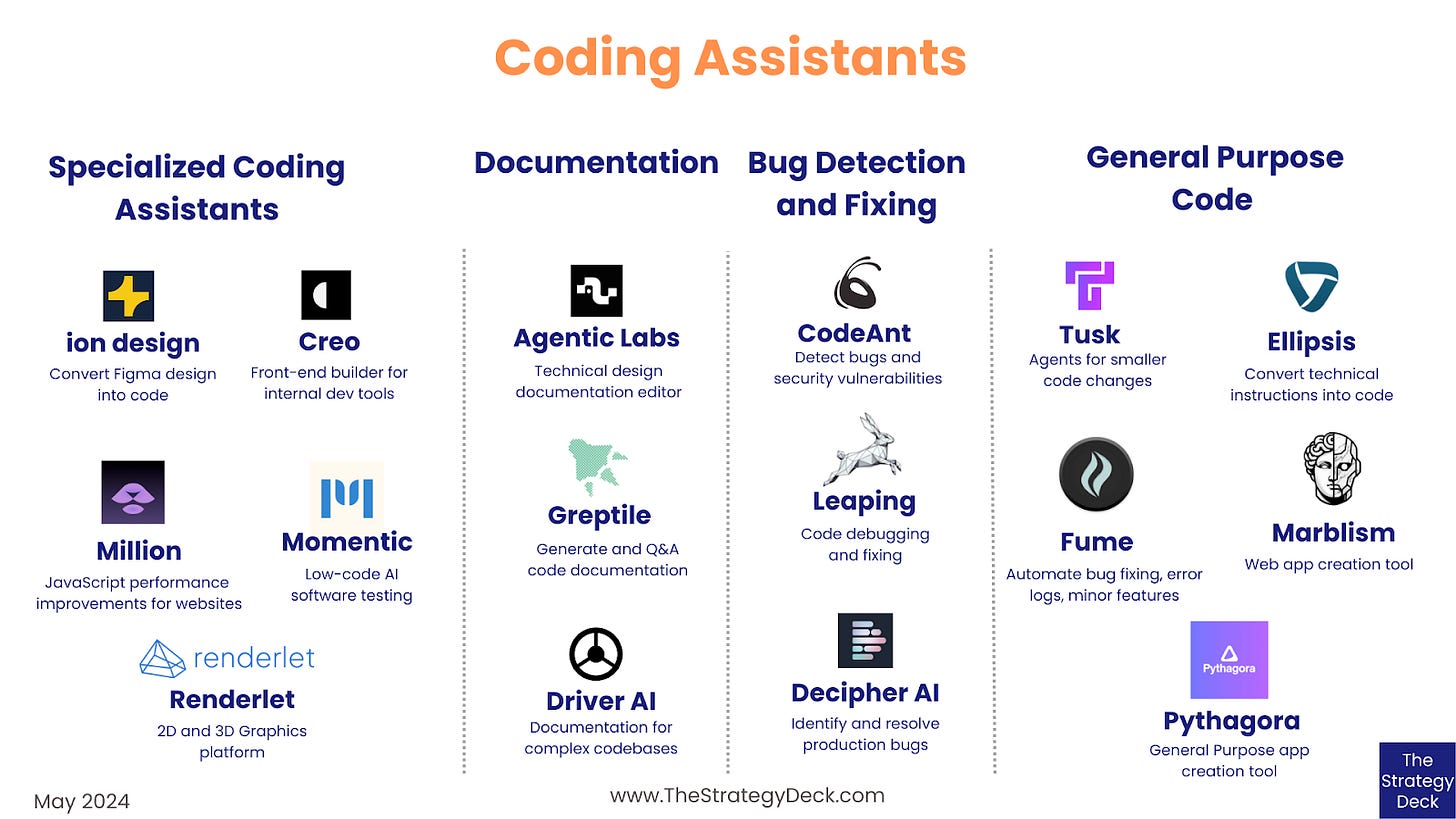Coding Assistants and Data and Analytics Tools - Deep Dive into the YCombinator W24 Batch
Market Opportunities for AI-based Coding Assistants and Data and Analytics Tools, as Reflected by the W24 Batch
Last month, Y Combinator finalized its W24 investments, featuring 249 early-stage companies, the vast majority of which are building AI-native applications and Machine Learning-based products .
This post is a deep dive into two of the AI categories: Coding Assistants and Data & Analytics products. Each of them is further segmented into specific subsets, based on the core functionality of the products and the respective market opportunities.
There are four types of coding assistants:
General Purpose code generation
Bug detection and debugging
Documentation and technical design
Specialized coding assistants
And three types of data and analytics products:
Data analytics editors
Unstructured data tools
Business data analysts
Coding Assistants
General Purpose coding assistants work on the back- and front-end to complete, generate and fix code, as well as answer questions. They include Ellipsis, Fume, Marblism, Pythagora and Tusk.
Ellipsis converts technical instructions into code, starting with Python and JavaScript / TypeScript and expanding to over 20 other languages. The assistant can create multi-file code changes, review pull requests, answer questions about a codebase, create reports about code changes and automate library upgrades and refactors.
Fume is a software engineer assistant dedicated to the automation of mundane tasks such as fixing quality bugs, dealing with error logs or implementing minor features. When deployed, it can be activated through Slack and can write code and submit PRs without the user needing to open a code editor.
Marblism is a web app creation tool that generates the front- and back-end, github repos and other pieces of code for an app based on user natural language prompts. It writes in TypeScript, uses NextJS React and the Ant Design system for the front-end features and the Node.js environment, Next.js framework and TypeORM and PostgreSQL database for the back-end.
Pythagora is an open source IDE extension for VS Code that can build applications from natural language prompts. It takes requirements, asks questions, decides on the tech stack and writes, tests and reviews code and deploys and hosts the app online.
Tusk is an agent that helps with smaller code changes involved in completing customer tickets, making copy changes, implementing interface features and improving product quality. It gets assigned tickets, regenerates code to address PR reviews, investigates complex tasks and records a testing video.
Bug detection and fixing assistants focus on identifying and resolving errors. They analyze code, suggest probable causes and can recommend fixes for issues including syntax errors, runtime exceptions and logical errors. Some of their features include real-time error detection, automated error diagnosis and integration with IDEs. The debugging assistants in the YC W24 batch are CodeAnt, Decipher AI and Leaping.
Keep reading with a 7-day free trial
Subscribe to The Strategy Deck to keep reading this post and get 7 days of free access to the full post archives.



